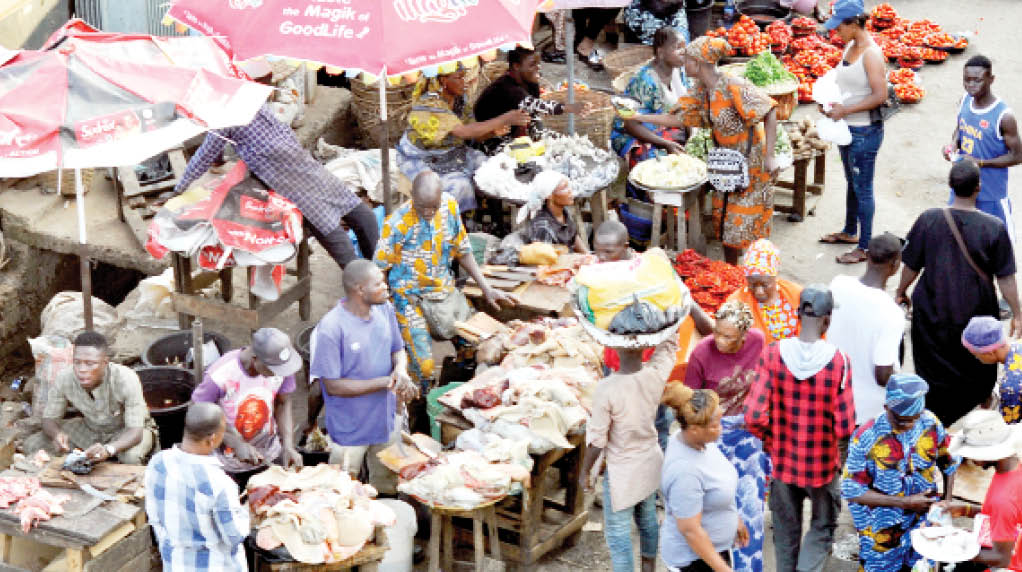FCT: NGO launches market model to empower poor women in urban areas
In a bid to address the challenges faced by urban poor women in accessing dignified spaces for legitimate trade, HipCity Innovation Centre has presented an innovative market model to government officials and stakeholders. The initiative aims to create sustainable opportunities for women at the lower rung of the social ladder, providing them with affordable trading […]

traders and customers at agege main market in lagos state, yesterday
In a bid to address the challenges faced by urban poor women in accessing dignified spaces for legitimate trade, HipCity Innovation Centre has presented an innovative market model to government officials and stakeholders.
The initiative aims to create sustainable opportunities for women at the lower rung of the social ladder, providing them with affordable trading spaces within a structured and supportive environment.
Speaking during the event in Abuja on Wednesday, the centre’s executive director, Bassey Bassey, explained the significance of the model, saying: “What we’re doing here today is presenting the market—the market created between urban poor women and our organization, alongside our consultants, to the government and other stakeholders.
“The goal is to have the model adopted and replicated on the ground so that women who are disadvantaged can find dignified spaces to engage in legitimate trade.”
He added that the initiative is born out of years of research, which highlights the struggles urban poor women face in accessing formal markets due to the prohibitive costs of renting or buying stalls.
“Many of these women cannot afford to pay for stalls in formal markets, where even the so-called low-cost spaces are not truly affordable.
“As a result, many end up hawking on the streets, which exposes them to harassment from law enforcement due to the law against street hawking in Abuja,” he said.
Commending the initiative, Architect Ononokpono Nchota Benson, acting director, Housing Satellite Towns Development Department, FCTA, said the move would further help curb the spate of criminals in the society.
She advised for more partnership with the federal government as part of an effort to drive needed development for women in the society.
She also hinted that the FCTA would be instrumental in the provision of land to champion the initiative.
“The government will bring in, maybe their technologies, their land, while the company sources the resources to do it, charge to the country,” she said.
Adding his voice, the consultant, Stephen Ajadi, reiterated that the move is aimed at creating informal spaces of commerce.
“The basic aim of what we’re doing is to create very pragmatic and sustainable spaces for people with very low incomes in Abuja, particularly women,” Ajadi explained.
